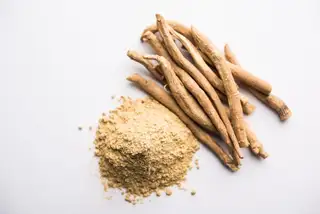
Chinese Medicinal Herbs for Better Sleep
In the intricate tapestry of traditional Chinese medicine (TCM), a wealth of knowledge exists regarding the use of medicinal herbs to promote better sleep. The ancient wisdom encapsulates a holistic approach to health, recognizing the pivotal role of quality sleep for overall well-being. This article delves into the realm of Chinese medicinal herbs, exploring their potential to improve sleep and the scientific insights that validate their use.
1. Introduction to Chinese Medicinal Herbs for Sleep
The concept of sleep in TCM is deeply rooted in the balance of the body's vital energy, or "Qi." Disruptions in sleep are often seen as a sign of imbalance, with specific herbs recommended to restore harmony and promote restorative rest.
2. Understanding Qi and its Relation to Sleep
TCM practitioners believe that the flow of Qi through the body's meridians is essential for good sleep. When Qi is disrupted, it can lead to insomnia or poor sleep quality. Chinese medicinal herbs are used to regulate Qi, calm the mind, and support the body's natural sleep mechanisms.
3. Key Chinese Medicinal Herbs for Sleep
Several herbs stand out in TCM for their sleep-promoting properties:
Suan Zao Ren (Ziziphus jujuba): Known for calming the heart and soothing the liver, it is used to treat restlessness and insomnia.
Bai Zi Ren (Biota orientalis): Used to nourish the heart and calm the spirit, it is beneficial for those with excessive thinking and emotional imbalances that affect sleep.
Fu Shen (Poria cocos): With its calming properties, it is used to address emotional disturbances and insomnia caused by an unsettled mind.
He Huan Pi (Albizia julibrissin): Recognized for soothing the liver and calming the spirit, it helps with emotional imbalances and irritability.
Yuan Zhi (Polygala tenuifolia): Believed to calm the heart and spirit, it is used to treat restlessness, palpitations, and insomnia.
Wu Wei Zi (Schisandra chinensis): Known for its adaptogenic properties, it helps the body adapt to stress and reduces stress-induced insomnia.
4. Mechanisms of Action
The mechanisms by which these herbs promote sleep are varied, from their sedative effects on the central nervous system to their ability to regulate the body's internal balance and reduce anxiety.
5. Modern Research and Traditional Use
While TCM has used these herbs for centuries, modern research is beginning to explore their efficacy. Studies have shown that certain herbs can have a positive impact on sleep architecture, reducing sleep latency and improving sleep efficiency.
6. Integrating Chinese Medicinal Herbs into Your Sleep Routine
Incorporating these herbs into a daily routine can be as simple as brewing a cup of herbal tea before bed or taking a supplement formulated with sleep-promoting herbs. It is essential to choose high-quality products and follow the recommended dosages.
7. Safety and Precautions
As with any supplement, it is crucial to consider potential interactions with medications and individual health conditions. Consulting a healthcare professional before starting any new supplement regimen is advisable.
8. The Future of Chinese Medicinal Herbs for Sleep
The future of using Chinese medicinal herbs for sleep improvement looks promising. As research continues to uncover the mechanisms behind their effects, these ancient remedies may become more integrated into mainstream sleep therapy.
Chinese medicinal herbs offer a natural and holistic approach to improving sleep quality. With a foundation in ancient wisdom and supported by emerging scientific research, these herbs can be a valuable addition to a healthy sleep routine. As we explore the potential of these time-honored remedies, we uncover a path to better sleep and, ultimately, better health.





